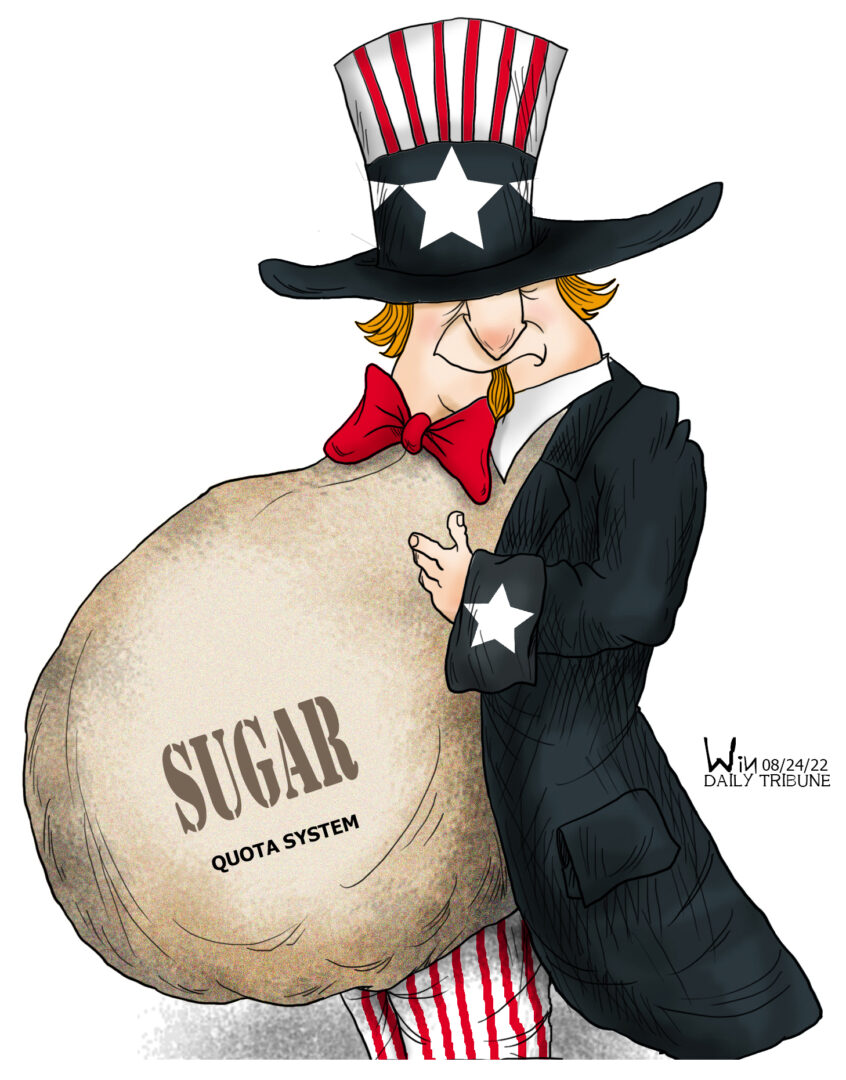Among the enduring legacy of the American colonial period is tying up the local sugar industry to supplying the US market with its best quality of the commodity under a quota system.
While even the government’s National Economic and Development Authority said the scheme had outlived its usefulness and created distortions in the market, the Sugar Regulatory Administration had resisted converting the quota allocations for the local market where supply is running short.
The SRA maintained that the “A” quedan allocation was based on the desirability of continued access to the preferential US sugar market.
The excuse was that the US quota is useful during a bumper harvest, since the US price tends to be higher than world prices, plus the tariff privileges given to the industry.
NEDA, however, said in recent years, domestic production is already barely able to meet demand. The country has also been unable to fulfill its US sugar quota allocation, and exports to the US are being effectively supported by imports from the world market.
Thus, some participants in the quota system are forced to import supposedly to fulfill their commitments.
Several opportunities for abuse and fraud had resulted from the current setup, according to NEDA.
Sugar producers point to a trading cartel in cohorts with the SRA to have been the cause of the scarcity of the product in the market with the aim of inducing importation.
Local producers estimate that the cartel earns up to P1 billion a year from the importation of lower priced sugar.
For the past year, the commodity retailed at P1,500 per 50-kilo bag compared to imports from Thailand, which cost P1,100 per bag or a P400 difference per bag.
The SRA’s role in the lucrative racket is to prevent the “conversion” of sugar in the quota allocation to the US despite the advice from the American government that the Philippines needed only to advise that it will not be able to fill its quota due to the shortage in the local market.
Traders said the cumulative disallowed conversion of export sugar in the past four years totaled 9,965 metric tons, or 199,300 bags sitting in warehouses.
Traders said SRA disallowed the conversion since it will set “a bad precedent.”
In 2018, the SRA Board blocked the conversion of sugar for export insisting that there was ample supply, even as industrial users like Coca Cola were already complaining about the shortage.
Former president Rodrigo Duterte then issued Administrative Order 13 directing the SRA and the Department of Agriculture to prioritize the needs of the domestic market that the conversion was allowed.
The disallowance, however, resumed this year resulting to 9,600 metric tons of sugar being withheld from the market.
The controversial Sugar Order 4 authorized the importation of 300,000 metric tons that would have been covered by local supply with the coming harvest season along with the stockpile that is merely waiting to be approved for sale in the local market.
Even Malacañang admitted that the shortage of sugar in the market is artificial.
Greed indeed is a powerful force of destruction that causes misery to the nation.
